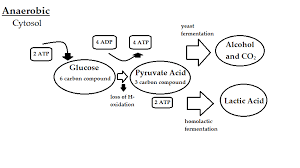
记忆方法
将“anaerobic”分解记忆:“a-”前缀表示没有或不, “aerobic”表示氧气的,所以“anaerobic”整体意思是没有氧气或非需氧的。可以想象一个生物或过程在没有氧气的情况下进行,以此帮助记忆。
以上内容由AI生成, 仅供参考和借鉴
中文词源
anaerobic 厌氧的
前缀an-, 没有,无。aerobic,喜氧的。
英语词源
- anaerobic (adj.)
- "capable of living without oxygen," 1879 (as anaerobian; modern form first attested 1884), from French anaérobie, coined 1863 by French bacteriologist Louis Pasteur (1822-1895), from Greek an- "without" (see an- (1)) + aer "air" (see air (n.1)) + bios "life" (see bio-).
权威例句
- 1. Anaerobic respiration occurs only in particularly active tissues such as muscles during severe exercise.
- 厌氧呼吸只有在处于剧烈运动状态的肌肉等特别活跃的组织中才会发生。
- 2. The slime layer consists of one aerobic and one anaerobic sublayer.
- 粘膜层由好气分层和厌气分层所组成.
- 3. Infection, especially anaerobic infection, is much more apt to occur.
- 感染, 特别是厌氧感染很容易发生.
- 4. This is 19 times the energy obtainable under anaerobic circumstances.
- 这是无氧时所得能量的19倍.
- 5. The use of sulfates and carbon dioxide requires strictly anaerobic conditions.
- 使用硫酸盐和二氧化碳时,需要严格的厌氧条件.